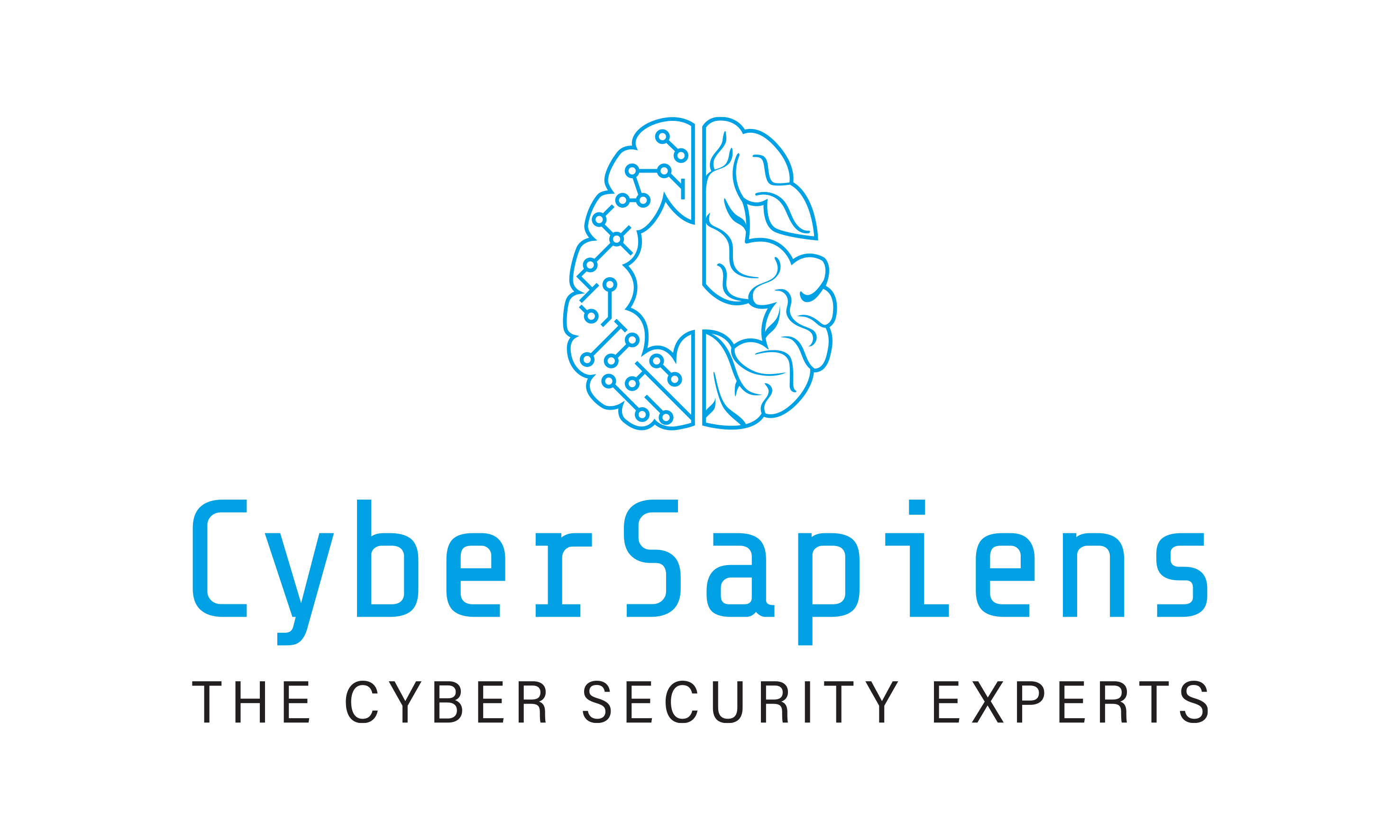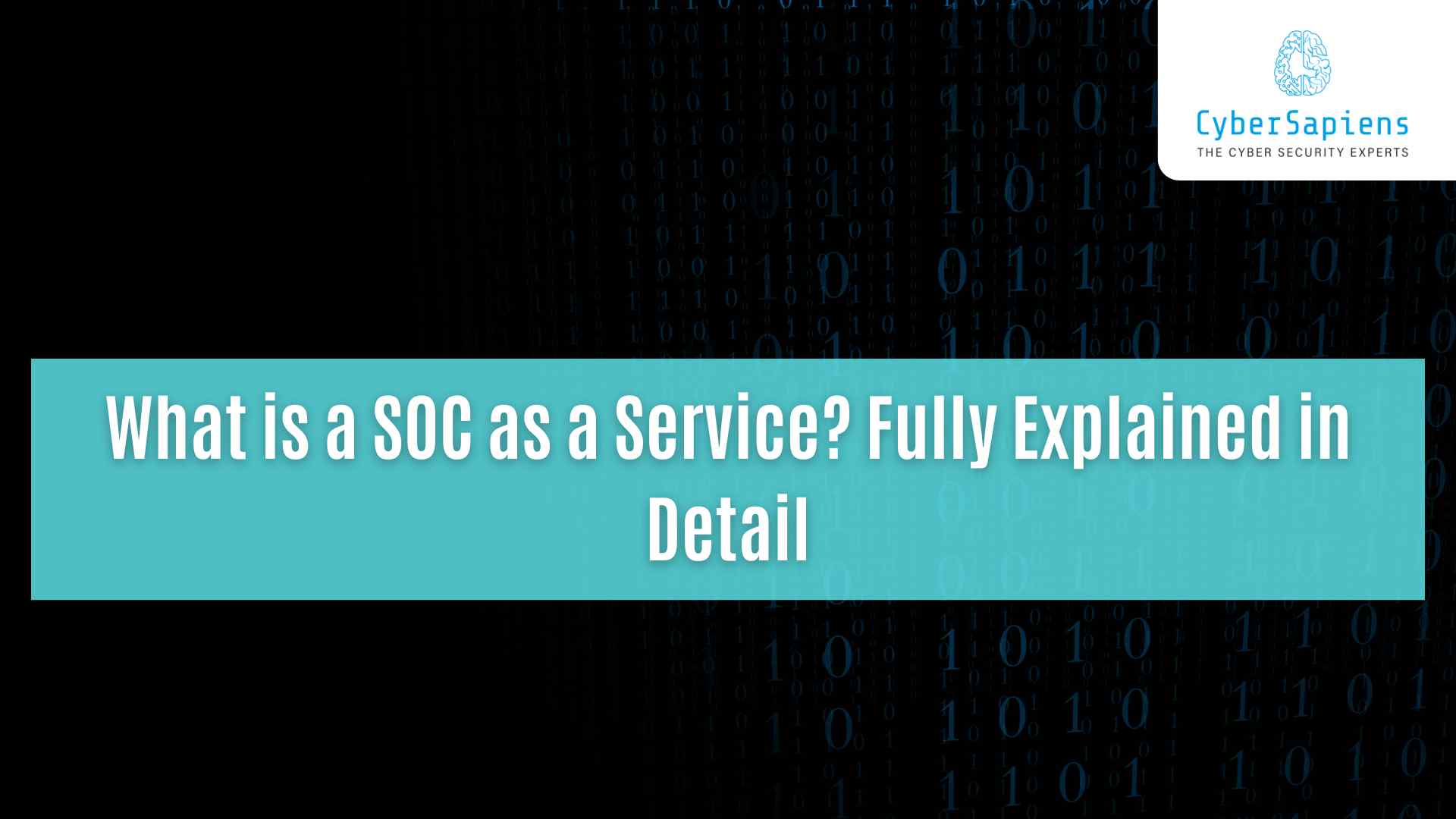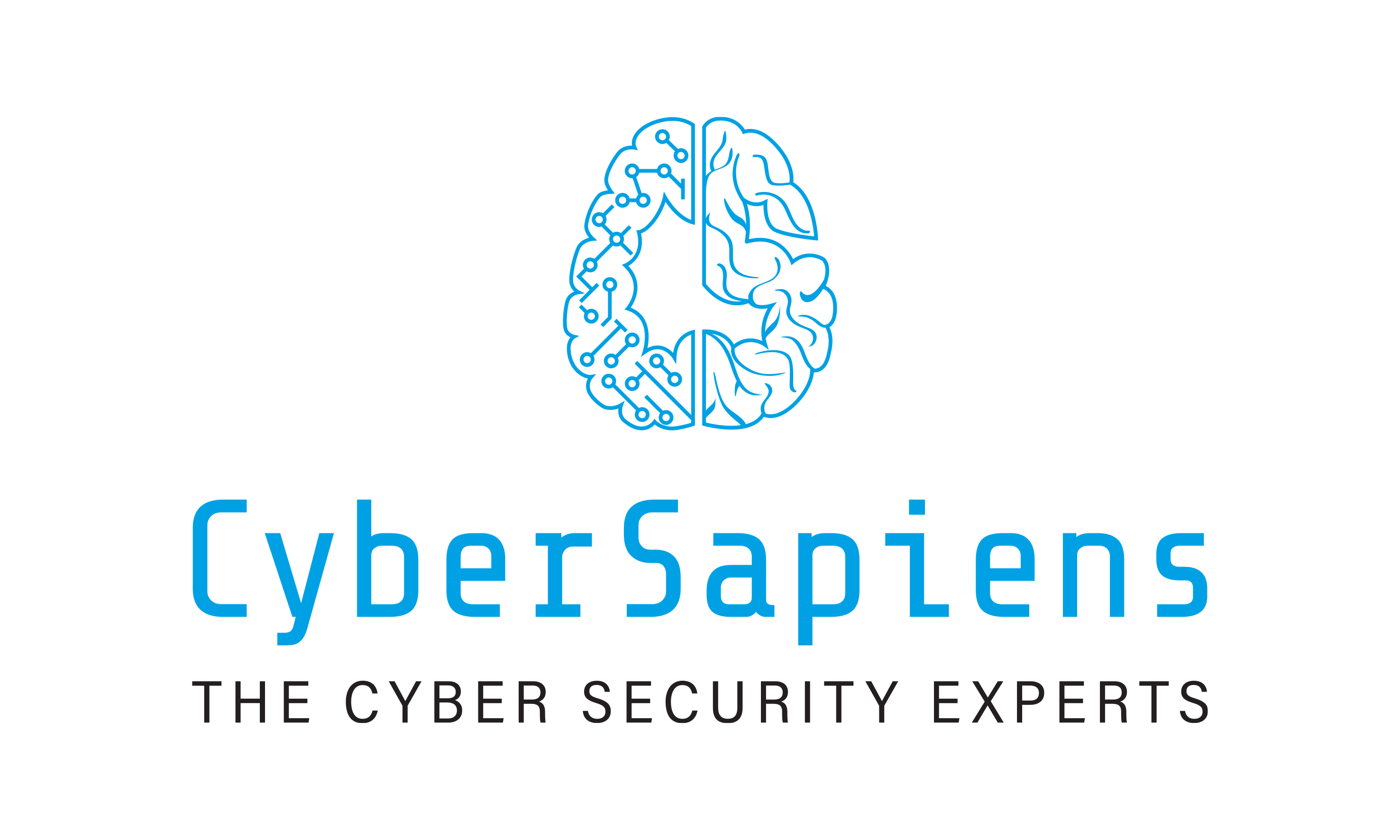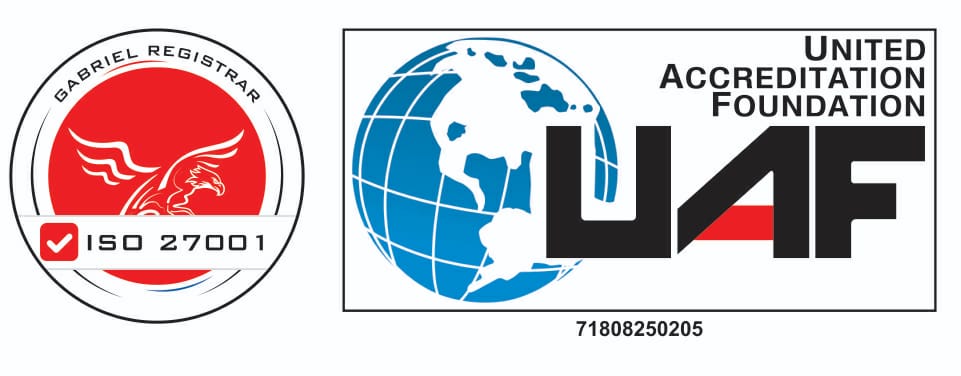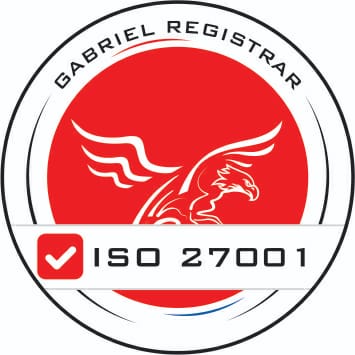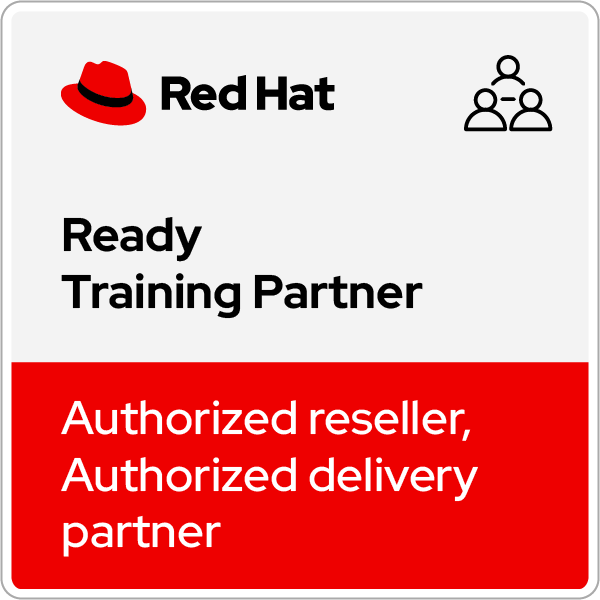Cybersecurity threats are becoming increasingly sophisticated and frequent. As a result, organizations of all sizes are looking for effective ways to protect their networks, systems, and data from malicious attacks.
This is where a Security Operations Center (SOC) comes in. A SOC is a centralized unit that monitors and responds to real-time security incidents. However, setting up and maintaining a SOC can be a costly and resource-intensive endeavour, especially for small and medium-sized businesses (SMBs). This is where SOC as a Service (SOCaaS) comes into play.
Let’s begin with our blog titled “What is a SOC as a Service“
What is SOC as a Service (SOCaaS)?
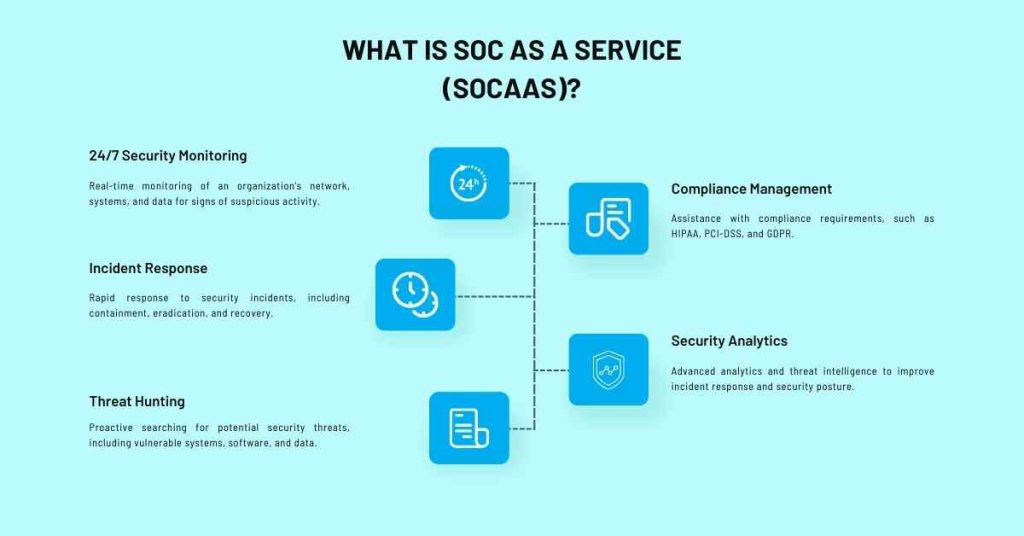
SOCaaS is a cloud-based security solution that provides organizations with access to a fully functional SOC without the need for significant upfront investments. With SOCaaS, organizations can outsource their security monitoring and incident response needs to a third-party provider, which offers a range of benefits, including cost savings, improved incident response times, and access to advanced security expertise.
A SOCaaS solution typically includes a range of services, such as:
1. 24/7 Security Monitoring
Real-time monitoring of an organization’s network, systems, and data for signs of suspicious activity.
2. Incident Response
Rapid response to security incidents, including containment, eradication, and recovery.

3. Threat Hunting
Proactive searching for potential security threats, including vulnerable systems, software, and data.
4. Compliance Management
Assistance with compliance requirements, such as HIPAA, PCI-DSS, and GDPR.
5. Security Analytics
Advanced analytics and threat intelligence to improve incident response and security posture.
How Does SOCaaS Work?
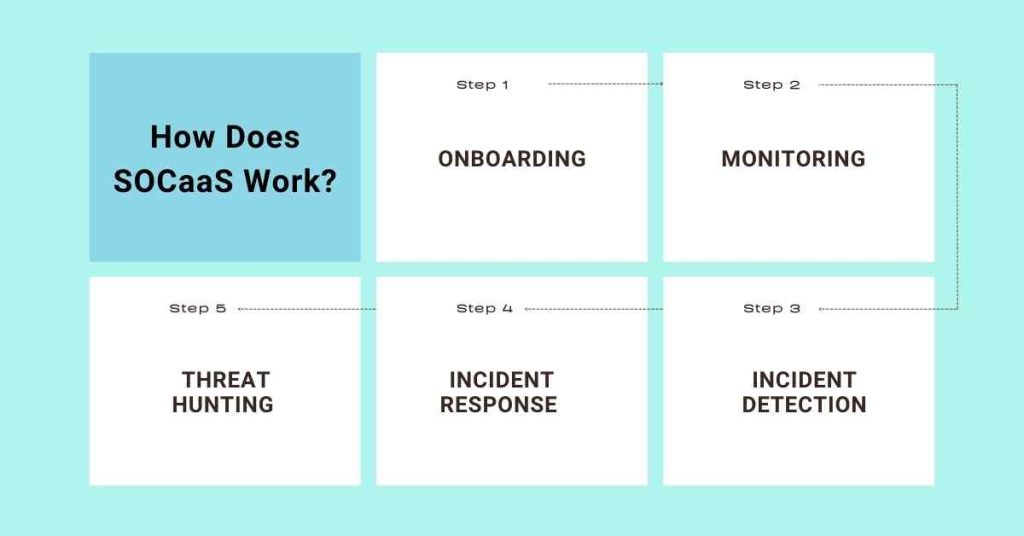
SOCaaS providers typically follow a standardized process to deliver their services:
1. Onboarding
The SOCaaS provider works with the organization to integrate its systems and data into the provider’s security platform.
2. Monitoring
The SOCaaS provider monitors the organization’s network, systems, and data for signs of suspicious activity.
3. Incident Detection
The SOCaaS provider’s security analysts detect potential security incidents and prioritize them based on severity.
4. Incident Response
The SOCaaS provider’s incident response team responds to confirmed security incidents, including containment, eradication, and recovery.
5. Threat Hunting
The SOCaaS provider’s threat-hunting team proactively searches for potential security threats, including vulnerable systems, software, and data.
Top 5 Benefits of SOCaaS
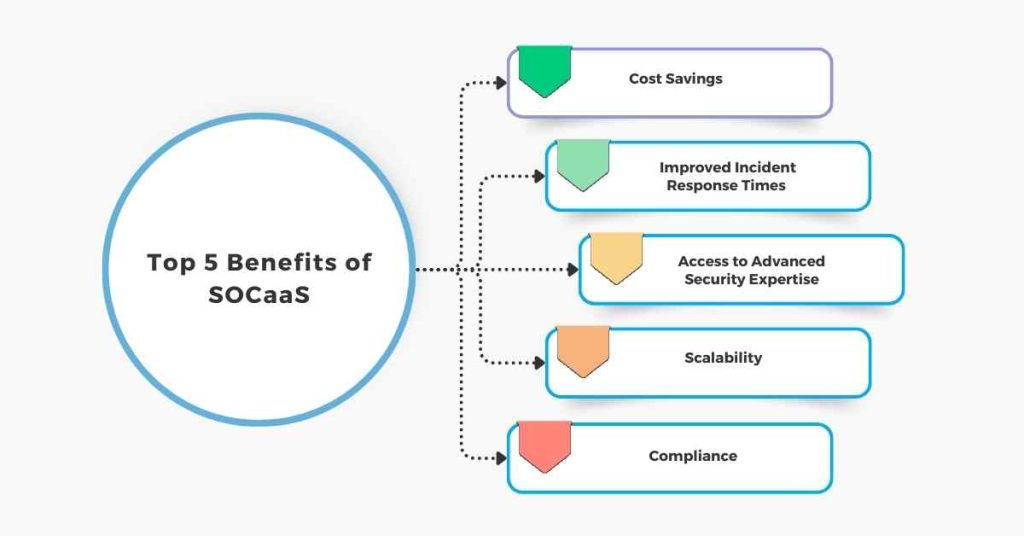
SOCaaS offers a range of benefits to organizations, including:
1. Cost Savings
SOCaaS eliminates the need for significant upfront investments in security infrastructure, personnel, and training.
2. Improved Incident Response Times
SOCaaS provides rapid incident response times, which can help minimize the impact of security incidents.
3. Access to Advanced Security Expertise
SOCaaS provides organizations with access to advanced security expertise and threat intelligence, which can improve their overall security posture.

4. Scalability
SOCaaS can scale to meet the needs of growing organizations, without requiring significant investments in new equipment or personnel.
5. Compliance
SOCaaS can help organizations meet compliance requirements by providing proof of security monitoring and incident response capabilities.
Who Needs SOCaaS?
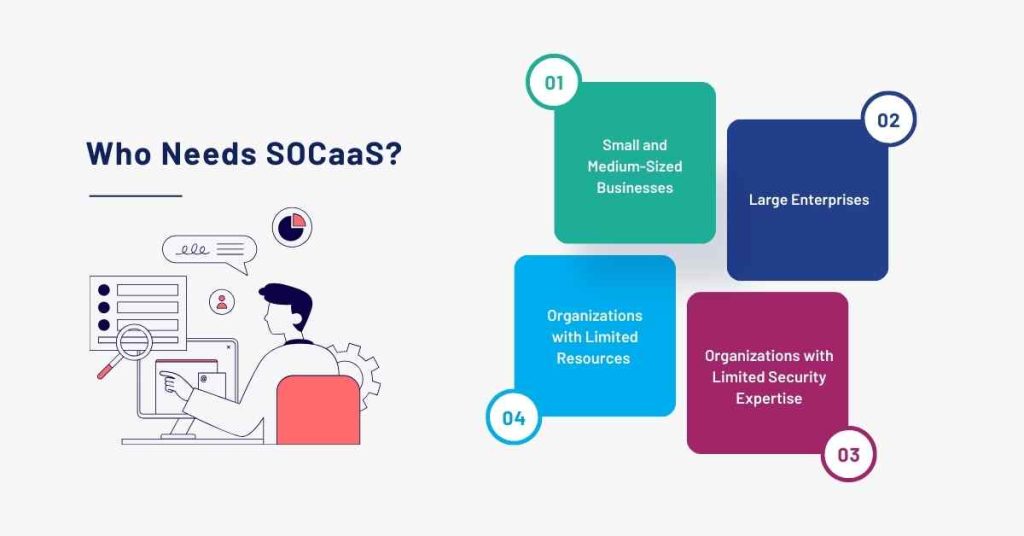
SOCaaS is suitable for organizations of all sizes, but it is particularly useful for:
1. Small and Medium-Sized Businesses (SMBs)
SMBs often lack the resources to establish and maintain a SOC, making SOCaaS an attractive option.
2. Large Enterprises
Large enterprises can use SOCaaS to augment their existing security capabilities or as a cost-effective alternative to building out their own SOC.
3. Organizations with Limited Security Expertise
SOCaaS provides organizations with access to advanced security expertise, which can help fill gaps in their security capabilities.
4. Organizations with Limited Resources
SOCaaS can help organizations with limited resources, such as budget, personnel, or infrastructure.
Best Practices for Choosing a SOCaaS Provider
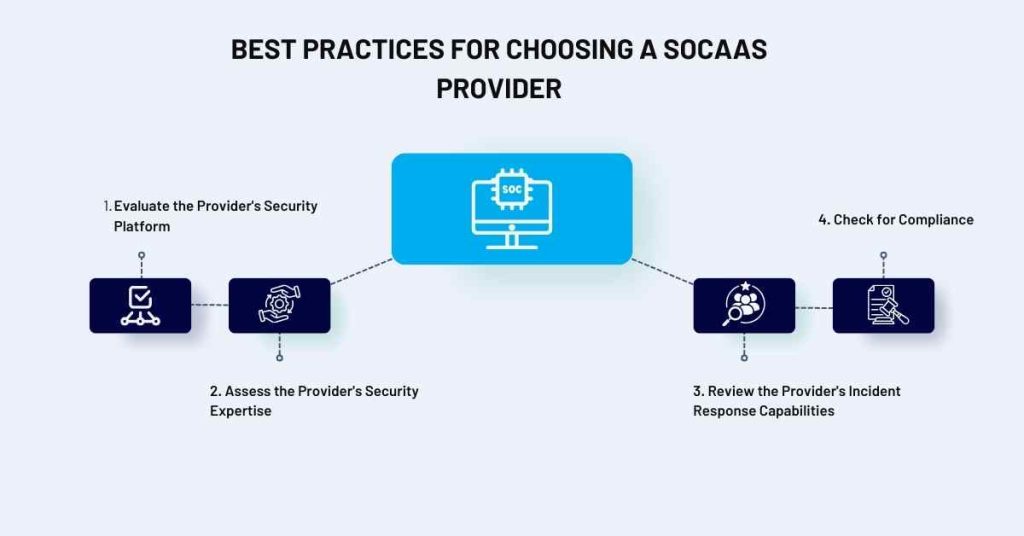
When selecting a SOCaaS provider, organizations should consider the following best practices:
1. Evaluate the Provider’s Security Platform
Review the provider’s security platform to ensure it meets the organization’s specific security needs.
2. Assess the Provider’s Security Expertise
Evaluate the provider’s security expertise and experience in dealing with similar security incidents.
3. Review the Provider’s Incident Response Capabilities
Assess the provider’s incident response capabilities, including their average response time and their ability to contain and eradicate security incidents.
4. Check for Compliance
Ensure the provider complies with relevant security standards and regulations.
Request References: Ask for references from existing customers to gauge the provider’s reputation and service quality.
Conclusion
In conclusion, SOCaaS is a cloud-based security solution that provides organizations with access to a fully functional SOC without the need for significant upfront investments. SOCaaS offers a range of benefits, including cost savings, improved incident response times, access to advanced security expertise, scalability, and compliance.
By choosing a reputable SOCaaS provider, organizations can effectively protect their networks, systems, and data from malicious attacks and minimize the impact of security incidents.
FAQs: What is a SOC as a Service?
1. What is SOC as a Service (SOCaaS)?
Ans: SOCaaS is a cloud-based security solution that provides organizations with access to a fully functional Security Operations Center (SOC) without the need for significant upfront investments. SOCaaS offers a range of services, including 24/7 security monitoring, incident response, threat hunting, and compliance management.
2. How does SOCaaS differ from a traditional SOC?
Ans: SOCaaS differs from a traditional SOC in several ways. SOCaaS is a cloud-based solution that can be deployed quickly and easily, whereas a traditional SOC requires significant upfront investments in infrastructure, personnel, and training. SOCaaS also offers greater scalability and flexibility than a traditional SOC.
3. What types of organizations can benefit from SOCaaS?
Ans: Any organization can benefit from SOCaaS, but it is particularly well-suited for small and medium-sized businesses (SMBs) that lack the resources to establish and maintain a traditional SOC. Large enterprises can also use SOCaaS to augment their existing security capabilities.
4. What services are typically included in a SOCaaS solution?
Ans: A SOCaaS solution typically includes a range of services, such as 24/7 security monitoring, incident response, threat hunting, compliance management, and security analytics.
5. How do I know if I need a SOCaaS solution?
Ans: If you’re concerned about the security of your organization’s networks, systems, and data, and you lack the resources to establish and maintain a traditional SOC, then SOCaaS may be a good option for you. You may also want to consider SOCaaS if you’re struggling to stay on top of security incidents or if you’re looking for a cost-effective way to improve your organization’s security posture.
6. How do I choose a SOCaaS provider?
Ans: When choosing a SOCaaS provider, consider the provider’s security expertise and experience, the range of services they offer, and their reputation. You should also ask for references and reviews from existing customers.
7. How does a SOCaaS provider handle security incidents?
Ans: A SOCaaS provider will typically have a incident response plan in place that outlines the steps that will be taken in the event of a security incident. The provider will work closely with your organization to contain, eradicate, and recover from the incident.
8. Can I customize a SOCaaS solution to meet my organization’s specific needs?
Ans: Yes, most SOCaaS providers offer customized solutions that can be tailored to meet the specific needs of your organization.
9. How is a SOCaaS solution typically priced?
Ans: SOCaaS solutions are typically priced on a subscription basis, with costs varying depending on the range of services required and the size of the organization.
10. What kind of training and support is typically provided by a SOCaaS provider?
Ans: SOCaaS providers typically offer training and support to help your organization get the most out of the solution. They may also offer regular meetings and updates to ensure that the solution is meeting your organization’s security needs.

